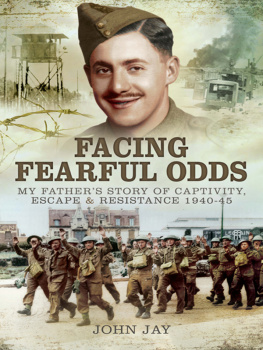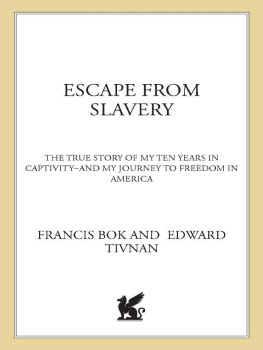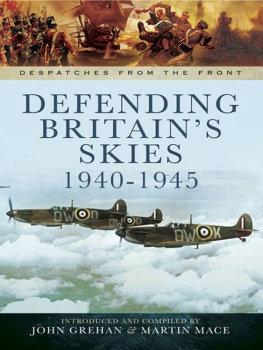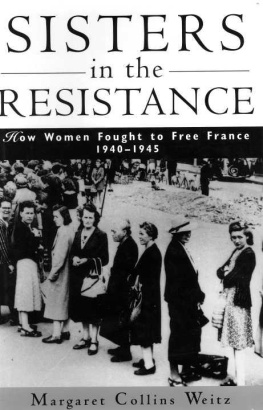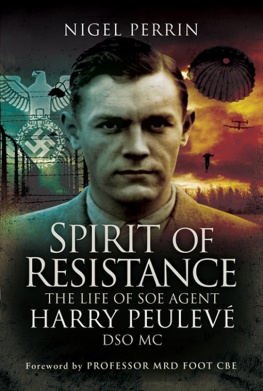John Jay - Facing Fearful Odds: My Fathers Story of Captivity, Escape & Resistance 1940-1945
Here you can read online John Jay - Facing Fearful Odds: My Fathers Story of Captivity, Escape & Resistance 1940-1945 full text of the book (entire story) in english for free. Download pdf and epub, get meaning, cover and reviews about this ebook. year: 2014, publisher: Pen and Sword, genre: History. Description of the work, (preface) as well as reviews are available. Best literature library LitArk.com created for fans of good reading and offers a wide selection of genres:
Romance novel
Science fiction
Adventure
Detective
Science
History
Home and family
Prose
Art
Politics
Computer
Non-fiction
Religion
Business
Children
Humor
Choose a favorite category and find really read worthwhile books. Enjoy immersion in the world of imagination, feel the emotions of the characters or learn something new for yourself, make an fascinating discovery.
Facing Fearful Odds: My Fathers Story of Captivity, Escape & Resistance 1940-1945: summary, description and annotation
We offer to read an annotation, description, summary or preface (depends on what the author of the book "Facing Fearful Odds: My Fathers Story of Captivity, Escape & Resistance 1940-1945" wrote himself). If you haven't found the necessary information about the book — write in the comments, we will try to find it.
John Jay: author's other books
Who wrote Facing Fearful Odds: My Fathers Story of Captivity, Escape & Resistance 1940-1945? Find out the surname, the name of the author of the book and a list of all author's works by series.
Facing Fearful Odds: My Fathers Story of Captivity, Escape & Resistance 1940-1945 — read online for free the complete book (whole text) full work
Below is the text of the book, divided by pages. System saving the place of the last page read, allows you to conveniently read the book "Facing Fearful Odds: My Fathers Story of Captivity, Escape & Resistance 1940-1945" online for free, without having to search again every time where you left off. Put a bookmark, and you can go to the page where you finished reading at any time.
Font size:
Interval:
Bookmark:
so they should know what their grandfather did in the war
that they might live

PEN & SWORD MILITARY
An imprint of
Pen & Sword Books Ltd
47 Church Street
Barnsley
South Yorkshire
S70 2AS
Printed and bound in England by CPI Group (UK) Ltd, Croydon CR0 4YY.
PEN & SWORD BOOKS LIMITED
47 Church Street, Barnsley, South Yorkshire, S70 2AS, England
E-mail: enquiries@pen-and-sword.co.uk
Website: www.pen-and-sword.co.uk
In der fernen Friedenszeit
Eine einfache Geschichte,
Wenn alles liegt bereit.
Ich mochte weiter schreiben.
Erinnerung und Heldentat.
Das hilft mir Zeit vertreiben.
In distant peacetime,
A simple story
When everything was clear.
Id like to continue writing
Of memory and heroic deeds
To help me pass the time.
For Johnny-head-in-air;
He sleeps as sound
As Johnny underground.
Fetch out no shroud
For Johnny-in-the-cloud;
And keep your tears
For him in after years.
Better by far For
Johnny-the-bright-star,
To keep your head,
And see his children fed.
Font size:
Interval:
Bookmark:
Similar books «Facing Fearful Odds: My Fathers Story of Captivity, Escape & Resistance 1940-1945»
Look at similar books to Facing Fearful Odds: My Fathers Story of Captivity, Escape & Resistance 1940-1945. We have selected literature similar in name and meaning in the hope of providing readers with more options to find new, interesting, not yet read works.
Discussion, reviews of the book Facing Fearful Odds: My Fathers Story of Captivity, Escape & Resistance 1940-1945 and just readers' own opinions. Leave your comments, write what you think about the work, its meaning or the main characters. Specify what exactly you liked and what you didn't like, and why you think so.

